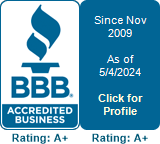Carr Article: Leased PV Systems Complications
MORTGAGE FACTS & FICTION
Unraveling the Myths of the Mortgage Maze
By Roxanne Carr June 2015
Let’s talk about solar panels and the mortgage financing rules which relate to them. We have seen an increase in potential homebuyers or current homeowners wishing to obtain mortgages with properties that have owned or leased solar systems. It seems that solar is becoming increasingly more popular as it becomes more affordable, while many of us are also thinking about the environment and keeping our energy costs down. However, often the seller or the buyer in a transaction will be unaware of the rules we must face in financing homes with solar panels. As a recent headline in the LA Times (ken harney 3/29/2015) declared, “Panels Can Foil A Home Sale,” and this can certainly be true.
I will start with conventional financing and the rules set forth by the largest entity in the secondary market, Fannie Mae (FNMA). It has issued very particular guidelines with regard to our financing of homes with solar panels. If the solar system is owned by the seller and not leased, there is no complication and the transaction will be handled no differently than any other loan. Value can be given to the solar panels if the appraiser feels the market supports that value.
If the solar system has been leased by the seller or owned by a third party in a power purchase agreement, there are several requirements:
~the appraiser cannot give the system any value;
~the proposed borrower must qualify with the lease payment – not so for a power purchase agreement if the payment goes entirely to pay for the energy, but any portion not going toward the purchase of the energy must be included in the qualifying ratio (the same holds true for VA loans);
~the property must still be connected to the traditional electrical utilities; and
~any title liens placed on the property by the solar company must be subordinated to the new mortgage lien.
Additionally, the owner of the solar panels must have general liability insurance in place that will cover damage to the mortgaged property caused by any faulty installation, malfunction or any manufacturing defect. The owner of the panels cannot be named as loss payee or named insured on the property owner’s hazard insurance policy (thereby putting it ahead of the lender in the event of any property damage). The borrower’s homeowner insurance policy must not exclude coverage for any tort (wrongful act) liability the borrower may have under the terms of the contract with the owner of the solar panels and may not exclude coverage for losses to the premises by reason of the presence of the solar equipment.
There are several other items in the lease or power purchase agreement that must be reviewed by the lender, but to highlight the more critical portions:
In the event of foreclosure, either the lender may terminate the lease/agreement and require the third-party to remove the equipment; or the lender must have the right to become the beneficiary of the lease/agreement without charge; or the lender has the right, but not the obligation, to enter into a new lease/agreement with the third party under terms no less favorable than the prior owner, and of any lease/agreement must also be assignable to any subsequent purchaser after the foreclosure.
Now, as to FHA guidelines – one outstanding difference from FNMA is that the solar lease payment does not have to be included in the proposed borrower’s qualifying obligations.
FHA is similar to FNMA in that if the system is owned by the seller, the value consideration will be handled the same way. If it is leased, FHA guidelines are somewhat unclear and are in development, but we have found there are many kinds of solar agreements and the very differences make it difficult to set rules.
To date, FHA has posted responses such as:
~A home that operates with a leased energy system or power purchase agreement may be eligible for FHA-insured financing, but only when such agreements are free of restrictions that prevent the borrower from freely transferring the property.
~Such agreements cannot cause an ownership transfer by the borrower to be void or voidable by a third party, be subject to the consent of a third party or have limits on the amount of sales proceeds a borrower can retain (as due to a lien or due-on-sale clause, for example).
This is just a highlight of a few of the FHA rules with regard to solar that we have encountered.
Each agreement must be carefully analyzed by the lender and often requires further consultation with FHA personnel.
Conclusions? Be aware of the potential complexities that can occur when you lease, rather than buy, solar panels. Talk with your mortgage professional about possible complications that can be avoided; it is always wise to know the rules.
Copyright © 2015 Roxanne Carr
Roxanne Carr is division president of The Mortgage House, Inc. She has over 35 years’ experience in the mortgage banking industry.
Your e-mailed questions are welcomed through her website at: www.themortgagehouse.com or call her at 1-800-644-4030.
This article is a forum to explore real estate principles. It is not intended to provide tax, legal, insurance or investment advice and should not be relied upon for any of these purposes.




